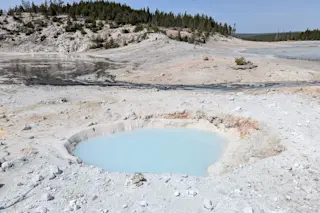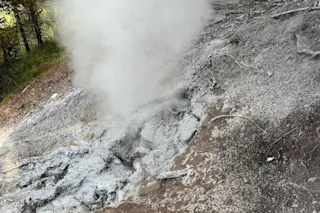We've all seen the images of receding glaciers and stranded polar bears that accompany talks of climate change. But rising carbon dioxide levels also have subtler and less familiar effects, and may prove to be a boon for many animal groups. Plant-eating insects, for example, have much to gain in a high -CO2 future as rising concentrations of the gas can compromise the defences of the plants they feed on.
Plants and herbivorous insects are engaged in a silent war that we are rarely privy too, where chemicals act as both weapons and messengers. Munching mandibles trigger the production of signalling molecules like jasmonic acid that announce the presence of invaders to other plants of the plant, neighbouring individuals, or even parasitic wasps, which attack the pests and turn them into living larders for wasp eggs.
The battle isn't over even after parts of the plant are eaten. Beetles, for ...













